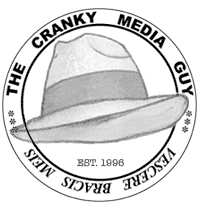I'd Like To See The Books, Please
By Robert Pagani
Enron, once the seventh-largest company in the United States is now the
largest bankruptcy case in history. A lot of Americans, including yours
truly, think that the cozy relationship Enron management had with the Bush
administration is indicative of shady dealings. Certainly if Bill
Clinton's Consensual Zipper Olympics were worthy of $60 million worth of
investigations, the alleged collusion between the Bush administration and a
company that has left thousands of its former employees staring into the gaping
maw of financial ruin deserves a couple of shekels worth of
look-see, right?
Of course the Bush administration realizes the urgency of this and is
cooperating fully. Uh well, not exactly. In fact, I'd say we'll see
the advent of porcine aviation before George's Boys stop stonewalling.
They've got the Evidence Ball and, to mix metaphors, if Congress wants it,
they'll have to tear it from their cold dead fingers.
Congress--well, the Democrats in Congress, anyway--want to see the records of
the meetings senior administration officials had with Enron executives before
the 401(k) hit the fan. Vice-president Dick Cheney (the Will Riker to
George W. Bush's Captain Retard of the starship Free Enterprise) was head of the
task force formulating the country's energy policy early last year. He had
at least one one-on-one meeting with Ken Lay, Enron's CEO, so naturally
Congressional investigators are pretty interested in seeing what the two had to
say to each other.
Taking his cue from Punxsutawney Phil, the weather predicting groundhog,
Cheney stuck his head out of his secure, undisclosed location, saw his shadow
and announced at least six more weeks of executive privilege. You want the
papers, sue me, he said. In Washington D.C., a town with more lawyers than
oxygen, that constitutes a challenge. They took the bait and the game is
afoot.
Cheney's argument is that if members of the administration can be compelled
to hand over minutes of meetings they have with business leaders, those business
leaders will be reluctant to talk to government officials in confidence.
To that, I'm tempted to say, "Your point?"
Let me advance the wacky notion that secrecy in a democracy is almost always
a bad thing. "Secretly" is how the Commie Bastards of the Evil Empire
operated, remember? With the narrowly-defined exception of legitimate
national security issues, I would say that anyone talking to a government
official should feel that what they say is for public
consumption.
Republicans are fond of saying that government should run like a
business. For the moment, let's overlook the reasons that doesn't really
make sense (hint: Enron). Let's just accept that concept for the sake of
the discussion. OK, so the executive branch is the "management"
of our hypothetical "company". I'd say that makes the public the
"stockholders". In even the largest companies, the management
team is accountable to those who hold shares in the business. So,
Vice-chairman Cheney, as a stockholder I say that I have some questions about
how the business is being run and I'd like you to open the books. Still
want to stick with that "government as business" metaphor,
Bunker Boy?
Just as a person walking down a crowded street has no legitimate expectation
of privacy, neither should anyone who goes into public service, especially at
the highest level. I'm not talking about their personal lives; I'm talking
about the work they do while "on the clock". When the office you
sit in, the car you ride in, even the bean soup you eat at the commissary are
all subsidized by the American people, how dare you say that anything you do in
the course of your duties is none of the public's business?
That "executive privilege" crap didn't smell right when Nixon
pulled it and it doesn't smell right now. A nasty odor is wafting from the
pile of papers labeled "Enron meetings". If, as someone once
said, sunlight is the best disinfectant, open the books and let the sun shine
in.
|





